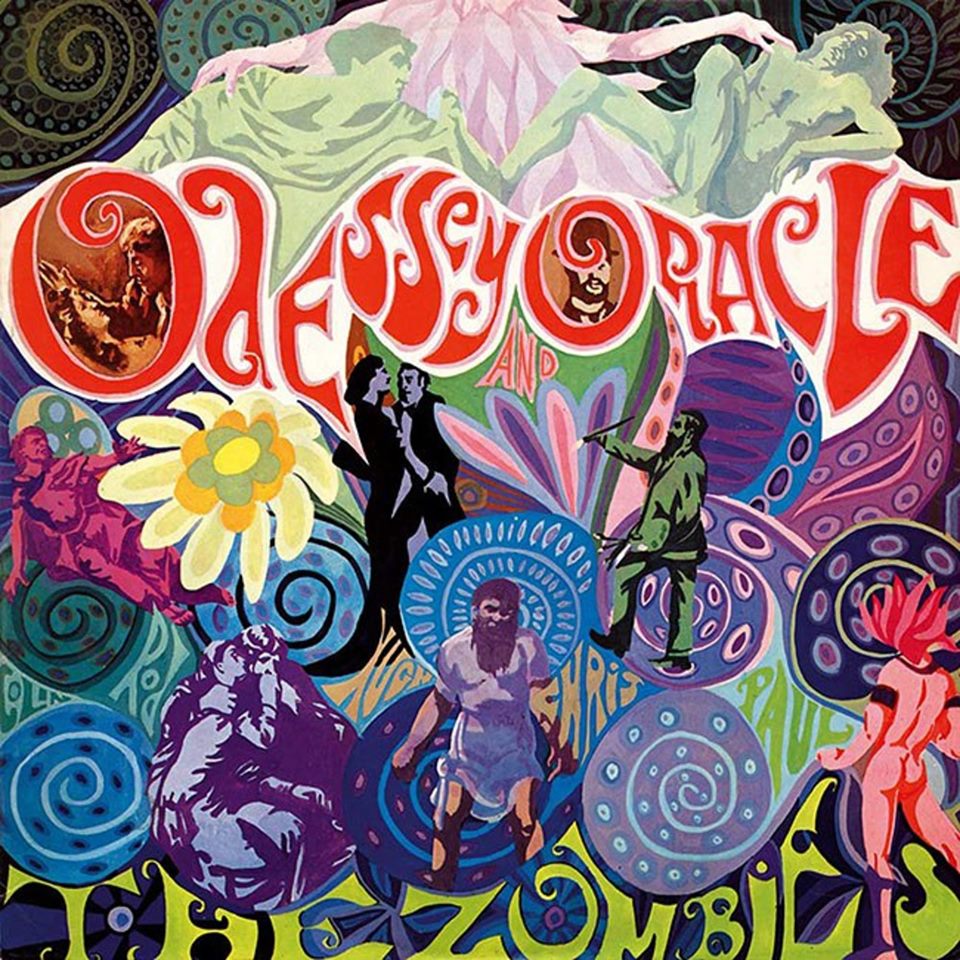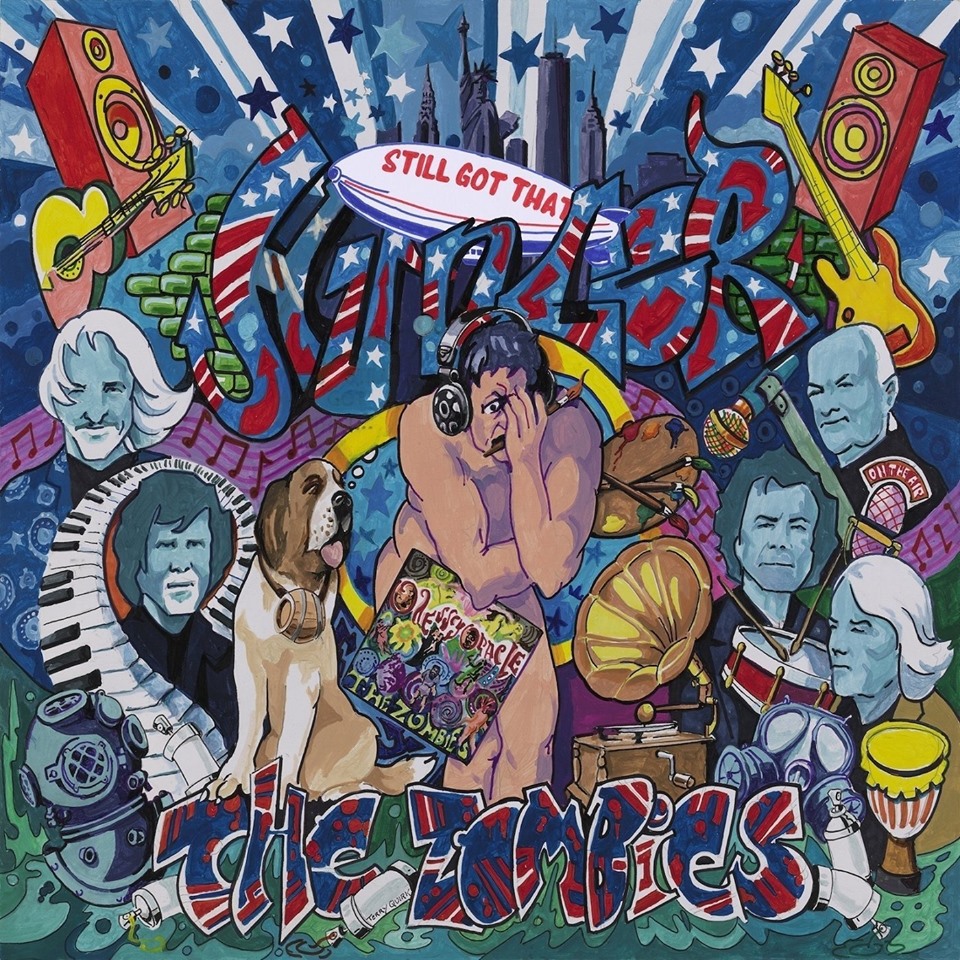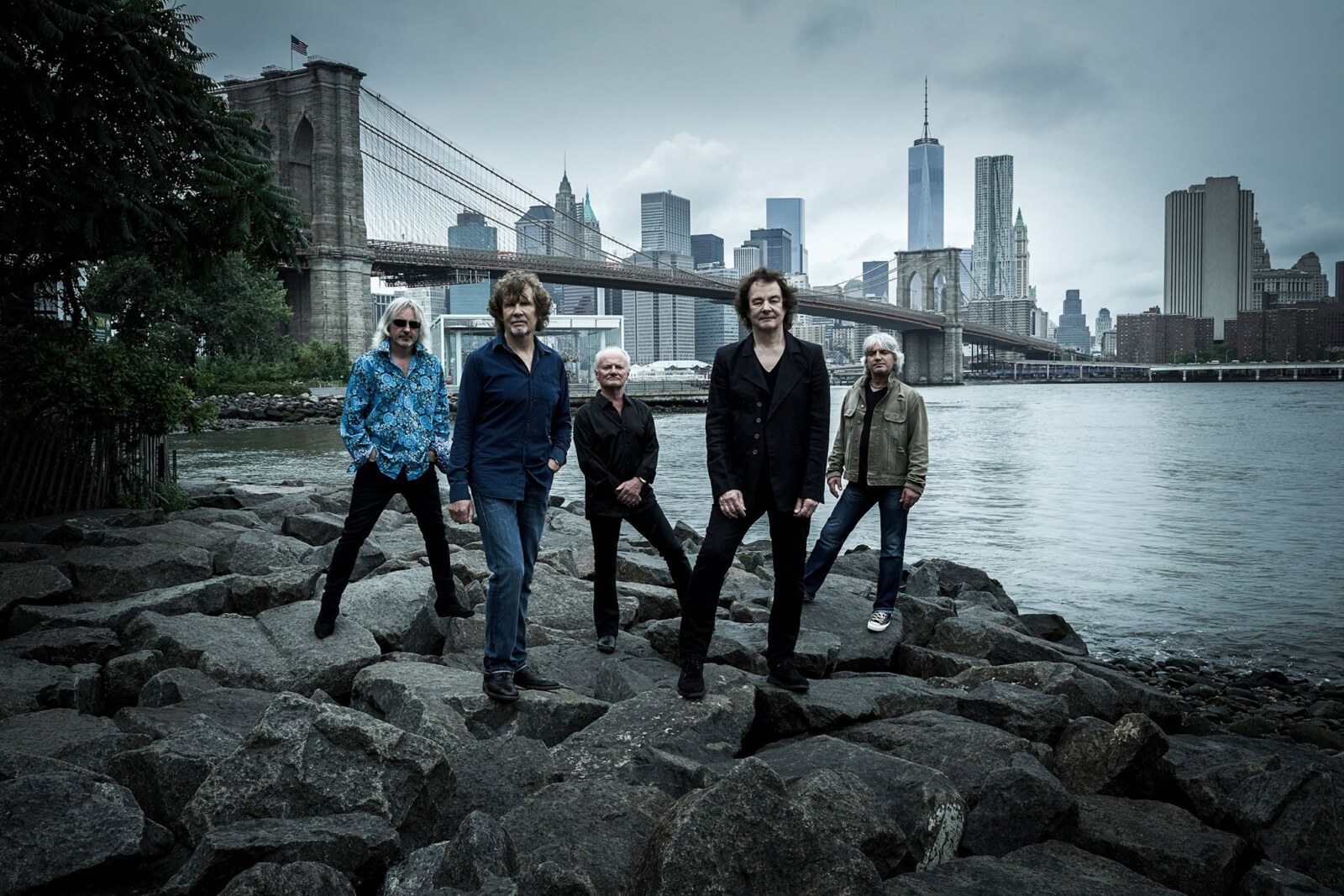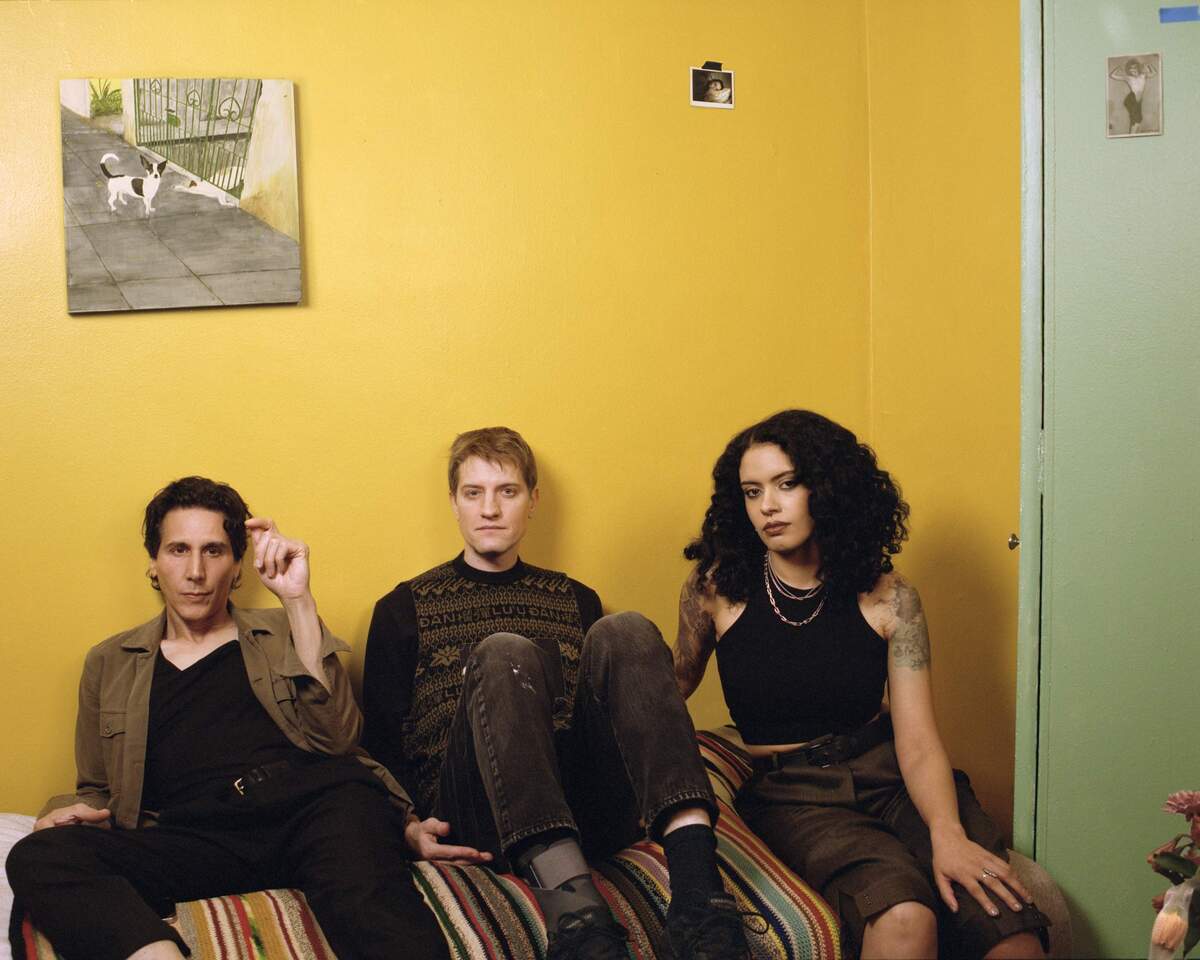The Zombies interview with Colin Blunstone
Colin Blunstone is, of course, the lead vocalist of The Zombies: the British Invasion band who exploded onto the scene in the mid-1960s with their timeless early singles “She’s Not There” and “Tell Her No,” and later recorded one of the most definitive and brilliant albums of the latter part of the decade via the 1968 masterpiece Odessey and Oracle. The Zombies’ ‘60s catalog is next to flawless and has proven to be incredibly durable.
What’s less known about Blunstone is that, after The Zombies broke up in the late ‘60s, he went on to form a solo career. The three albums he released between 1971-4: One Year, Ennismore, and Journey are particularly strong works that are under-appreciated and likely would find favor from any Zombies fan who has yet to hear them.
Blunstone continues to lead an active life in music. Since 2003 he has released over a handful of new studio albums, both as a solo artist and a member of the reformed Zombies. Tours and subsequent live albums have been part of this recent campaign, as well.
Over an email exchange I had the opportunity to ask Blunstone about subjects such as his “breathy” vocal style, the Zombies’ “nice boys” image, his memories of recording Odessey and Oracle, his launching of his solo career at the same time that Zombies bandmate and longtime partner Rod Argent started his own group Argent, what it feels like to be gigging at age 70, what music he’s listening to these days, etc.
It’s Psychedelic, Baby: The story goes that The Zombies didn’t intend to make a real go of being a band until you won a talent contest, which led to a recording contract. Is this how you remember it? Prior to the contest, were you thinking of the band as a temporary venture or did you have your sights set on a career in music at that stage?
Colin Blunstone: Prior to winning a big rock competition in 1964 The Zombies were a very young local band with a growing but still small local fan base. It was only after we won that I think we dared to wonder if we could ever be a full time professional band. We all remember what happened after the competition differently. I don’t think winning the competition automatically got us a recording contract with Decca but indirectly it led to us being introduced to our first producer Ken Jones who managed to sign us to Decca.
IPB: The Zombies 1960s material is (rightfully) noted for its remarkable consistency in quality. Did the band write some songs that never got recorded, or recorded but still never released?
CB: Originally there were songs that we recorded that weren’t released but when our boxed set was released in the late 90’s I think everything we ever recorded in the studio and live on the BBC was included. There was however one demo of us playing The Temptation’s “My Girl” that was never found. Because we travelled to the States often we were very aware that The Temptations had had a big hit with this tune although it hadn’t been a hit in the U.K. In the end Otis Redding beat us to it with his fine cover of The Temptations original and somehow our demo was lost forever.
“The Zombies always listened to a very wide spectrum of music in the early 60’s.”
IPB: What other music were you and the rest of the band listening to during The Zombies’ 1960s era?
CB: The Zombies always listened to a very wide spectrum of music in the early 60’s. From classical music to modern jazz and onto the blues as wells the early greats of Rock ‘n’ Roll, like Elvis, Chuck Berry, Jerry Lee Lewis and Little Richard. Later when The Beatles started to be successful I remember us being very impressed with everything that they did, too.
IPB: What were the 1960s Zombies like as a live band, compared to how you came off on recordings? How do you remember audiences’ reactions to your concerts from then? What memories do you have of touring experiences from those times?
CB: I think we were musically we sounded tougher when performing live, more dynamic and energised than we did on record. It was always a great disappointment to us all that so much of the excitement of our early recordings seemed to be lost in the final stages of mixing our records. Unfortunately we were never allowed to be present when those early tracks were mixed.Audience reactions to any successful band in the sixties was very full on and it was the same for us. Screaming and hysteria were the norm. It was often very hard to actually hear the band and once or twice the audience reaction was so intense and out of control it got quite scary!!Touring was probably more demanding then than it is now as commercial air travel was in its infancy and the whole business of bands regularly touring internationally was a new phenomenon. On the other hand artists oftener performed as one of a group of 14 or 15 other artists in a “package tour” which usually meant they were only required to play 2 or 3 songs each evening.
IPB: What memories do you have of The Zombies’ participation in Otto Preminger’s 1965 film Bunny Lake is Missing?
CB: Otto Preminger was a very demanding and aggressive man. He was very tough on the film crew and his staff but it didn’t really work with us as we didn’t really mind if we were included in the film or not. When he realised that he couldn’t bully us he quietened down and was much more reasonable. I wish we had had more time to work on the songs. We were asked to write and record three new songs in about 10 days. If we’d had more time I think we could have come up with stronger material.
IPB: The Zombies’ image in the 1960s was that of a clean-cut, scholastic sort of group of young men – scholarly “nice boys.” Do you think this might have kept some potential fans from giving the group attention, because at the time those listeners were actively seeking out acts who came across as more anti-establishment?
CB: I remember very early on visiting Decca’s press department and talking very briefly about some kind of approach to image. What could we say? We were mostly about 19 and just out of school and so the scholarly nice boy image began and so at a time when the public wanted bad boys, pirates and brigands we were presented as the absolute opposite. It was an unmitigated disaster and I sometimes think the damage done all those years ago still follows around today.
IPB: The band recorded Odessey and Oracle at a time when it had already decided to break up after it was done. What was the morale like for the group during the making of the album, and what were your personal thoughts on it at the time? Did you see it then as having the potential to become a classic?
CB: We all remember this differently. I definitely didn’t presume the band would break up after recording Odessey and Oracle. I could never have given the commitment and energy to the project if I already knew the band was breaking up. I thought the morale in the band was good especially at the beginning although maybe the atmosphere did deteriorate a bit later on. It’s very hard to judge your own work but I thought we had done the best work that we were capable of. At a time when singles were all important we were all crushed when “Care Of Cell 44” was released and didn’t make the charts. I think only time decides which albums will become classics. I was probably more concerned with day to day survival than creating a classic at the time.

IPB: After the recording of Odessey and Oracle, you went to work for an insurance firm. What was that period in your life like? At the time did you view that move as temporary, believing you would eventually get back to your career in music? Please describe just exactly how you came to return to making music.
CB: When The Zombies finished the three non-writers were absolutely broke and all three of us had to quickly get a job. I simply phoned an employment agency and it happened they had a vacancy in a big London insurance company. It was a very busy company and fortunately the intensity of the work didn’t allow me to dwell on the sadness of losing the band. In fact I was so devastated by the ending of the band that I wasn’t sure I ever wanted to return to the music business. For some time it looked as though Odessey And Oracle would not even be released in the U.S. but because of the hard work and vision of Al Kooper it was eventually released and “Time Of The Season” went on to be a huge hit though it was never a hit in the U.K. Gradually producers and record companies began making me offers to return to the business and after some time I started doing some evening sessions with producer Mike Hurst (who had just recorded the early Cat Stevens records) though I still kept my day job. Through a series of strange decisions it was decided to release a re-recording of The Zombies first hit “She’s Not There” under the pseudonym of Neil MacArthur and when it was a small hit I found myself back in the music business.
IPB: Your vocal work is often praised and noted for its uniqueness, and is routinely referred to as “breathy.” Are you comfortable with that description of it, and has your singing style ever been subjected to criticism, to your knowledge?
CB: I don’t generally read reviews but I do think my vocals are quite recognisable. I practice vocal exercises everyday on the road which has helped me keep my vocal range and work constantly on my phrasing always looking for a way to improve a performance. I’m sure my singing style has been criticised at some time but as I never read reviews I wouldn’t know. I prefer to talk songs through with musicians, arrangers and producers as I strive to make the most out of each song.
IPB: In the 1970s you launched a solo career at the same time that Rod Argent founded Argent. The two acts were releasing albums at the same time. What did you think of Argent, and did you and Rod communicate much about your respective post-Zombies careers through that era?
CB: I was a huge fan of Argent. I went to some of their earliest rehearsals and was amazed and excited by their songwriting and playing. They actually played on my first two solo albums but as they became ever more successful they were unable to record with me after that. I was very much involved with Rod at the time as he co – produced my first 2 solo albums and often wrote songs for my solo albums after that.
IPB: As you developed your career as a solo artist, how did that feel in relation to your experience as a member of a band? Was there more pressure on you then, and/or did you feel that you had more freedom?
CB: There are very subtle differences between being a member of a band and being a solo singer but they all add up to a totally different experience. Of course you do have far more freedom of choice but at the end of the day success or failure rests squarely on your shoulders alone.
IPB: Describe how you and Rod Argent came to agree to start working together again, beginning with the Out of the Shadows album in 2003.
CB: I had six concerts coming up and a keyboard player who had a habit of not turning up. On a whim I decided to ask Rod if he was interested in playing “live” again and was quite surprised when he said he was although he emphasised he would only want to do these specific six concerts. In the end we had such good fun that we just kept going and have now been playing together in this incarnation of the band for over 16 years. Rod already had some basic tracks recorded for a possible new album and we finished these tracks off and added a couple of new songs and that became our new first album (Out Of The Shadows) with this incarnation of the band.
“The music business has changed out of all recognition since the 60’s and is still changing day by day.”
IPB: You have continued to release new music over the last few years, both with the current version of The Zombies and as a solo artist. How does the experience of making these albums compare to recording with the 1960s Zombies and the earlier phases of your solo career?
CB: The music business has changed out of all recognition since the 60’s and is still changing day by day. Many of the medium and small sized record companies have disappeared along with much of the retail side of the business. The internet revolution has meant many people prefer to download or stream their music rather than buy CDs (this being one of the main reasons there are fewer and fewer record companies) leaving many artists to finance and arrange recording sessions, artwork, promotion and marketing for themselves. Of course these extra responsibilities also bring much more artistic freedom but an artist today certainly has far more responsibilities and with that far more decisions to make than they ever used to have.

IPB: What motivates you to continue making new music at this point?
CB: I can only think of my career in the music business in terms of making new music. Merely performing old material doesn’t motivate me at all.

IPB: How does it feel to be gigging at this stage of life?
CB: I never expected to be still performing live on stage at this time in my life so it’s come as a huge but very pleasant surprise. I think The Zombies are performing better than ever and there is a feeling in the band that while we will keeping, writing, recording and touring for as long as we are physically able to.
IPB: What other music are you listening to these days? Are there any contemporary acts who you like especially?
CB: I still listen to a very wide spectrum of music although I do find myself returning to my old favourite performers like Stevie Wonder, and Joni Mitchell.I hear many very good new singer songwriters. I liked the Sonic Executives last record and we’ve just finished touring with a great new band called Josh Flowers and The Wild who are brilliant!
– Brian Greene
Headline photo: Andrew Eccles




Good interview!!
Colin Blunstone has always been honest and insightful in his interviews. Blunstone is a very interesting and charming man.